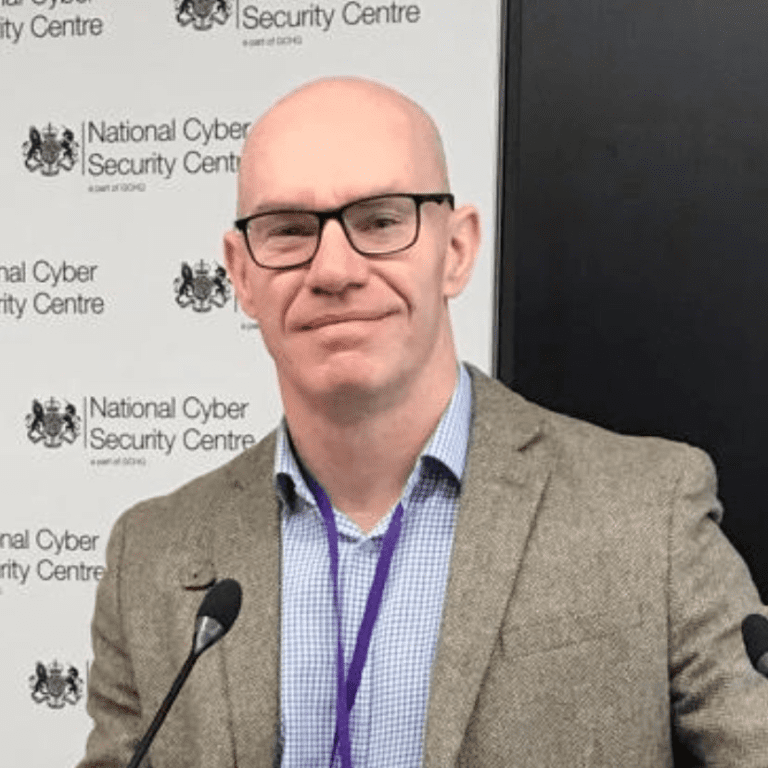Blockchain and HR: Pros and cons
Find out from the experts!
Why You Should Care
Blockchain has a lot of potential.
But does it have a role in the HR space?
Here's everything you need to know.
HR leaders, don’t miss out: Join us in Las Vegas for free as a VIP guest at UNLEASH America.
Blockchain has been touted as a game-changing technology for various industries, including HR.
By providing an immutable database that keeps track of recorded information, blockchain can increase the efficiency and accuracy of HR processes such as recruitment, payroll, and employee benefits.
An example of blockchains usage in HR is smart contracts. Smart contracts are self-executing contracts that have detailed the working terms between the two parties within the lines of code.
HR processes, such as onboarding and offboarding would be two examples of efficient use of smart contracts.
All parties would be ensured through the transparency of the written terms that were agreed upon when the contract was processed.
Employee benefit and payroll processes would also benefit from blockchain in HR. With blockchain, employee benefits could be stored on a secure, decentralized ledger that is accessible to both employees and employers.
Blockchain would also increase the speed of claims processing and allow for employers and employees to have a greater understanding of the administration of benefits.
When asked about the potential of blockchain in HR, Ranadip Chandra, senior principal at Gartner HR, states: “Employee data can be shared across the organization and controlled by employees themselves.
“This allows employees to privately control their data and ensure it is only used to benefit them, and it ensures employers can use this information to tailor and enhance employee experiences and benefits offerings.
“Equally, it reduces time-consuming and redundant processes.”
There are many potential benefits to using blockchain in HR, there are also several challenges that need to be addressed.
It will take time and effort for HR departments to implement blockchain, but the long-term results could prove much higher levels of efficiency and productivity of employees.
The future challenges of blockchain
After reaching out to experts in the area the challenges, and hesitations, of companies to adopt blockchain is clear. These challenges include scalability, privacy, interoperability, and regulation.
The scalability and inoperability of blockchain in HR is a daunting subject. It is critical to slowly grow innovative technologies, especially blockchain because the details will make the technology effective.
Companies will need to understand what type of commitment blockchain is before they successfully implement it.

Ranadip Chandra, senior principal, Gartner HR.
The inoperability of blockchain stems from the multiple secure databases that will be created across all companies, making data sharing increasingly hard where necessary.
Different companies may use different blockchain platforms, which could lead to compatibility issues when trying to share data between organizations.
Without a standardized approach to blockchain in HR, it could be difficult to achieve the full potential of the technology.
Gartner HR’s Chandra adds: “HR leaders must evaluate the business benefits, economy, consensus algorithms and protocols of each blockchain platform before investing in one.
“They should prioritize public blockchain platforms and assess their ability to integrate enterprise applications with new technologies, ensuring they can leverage non-fungible tokens and digital currencies where needed.”
Although public blockchain platforms could be the first step for companies to integrate an effective blockchain system, privacy concerns around blockchain would come to the fore.
Consistently listed as a primary concern, privacy in blockchain could be a dealbreaker for many if not handled properly. While blockchain technology provides transparency and guarantees that data cannot be changed, it also means that sensitive data could be exposed to unauthorized individuals if not stored and managed correctly.
This highlights the importance of proper handling of data on the blockchain to ensure that sensitive information remains secure and only accessible to authorized parties.

Ben Houghton, vice-president of engineering, IRIS Software Group
If blockchain becomes a standardized technology for companies, regulation will be essential. There are still many legal and ethical questions that need to be addressed.
HR professionals need to be aware of these potential issues and ensure that their use of blockchain complies with all relevant regulations.
Despite the challenges, it will benefit HR
The use of blockchain in HR has the potential to revolutionize the industry by improving the speed, security, and accuracy of HR processes.
Times are changing for HR and the workforce. Workers needs and work life balance are being prioritized and there has been a significant increase in outsourcing work.
Blockchain could help increase the security and efficiency of the changing world of employment.
Ben Houghton, vice-president of engineering at IRIS Software Group tells UNLEASH: “The value of blockchain lies in its provision of trust, transparency, security, and scalability.
“Because of this, it can also help enable more modern forms of work, such as freelancing, the gig economy, crowdsourcing and non-centralized self-managing organizations, which more people are turning to in in this ever-changing world.
“Blockchain could enable these forms of work through peer-to-peer networks, distributed governance, and incentive mechanisms to coordinate and collaborate without the need for centralized authority or intermediaries.”
Ultimately, blockchain has the potential to provide a more personalized employee experience that is tailored to skills and position.
Companies could also see a more secure talent management experience as credentials can be independently authenticated by past employers and/or educational institutions through blockchain.
Despite the issues that need to be addressed before widespread adoption of blockchain in HR can occur, the potential benefits make it worth considering.
The International Festival of HR is back! Discover amazing speakers from the world of HR and business at UNLEASH America on 26-27 April 2023.
Sign up to the UNLEASH Newsletter
Get the Editor’s picks of the week delivered straight to your inbox!

Editorial intern, UNLEASH
Casey is an undergraduate student at Boston University and has experience working with non-profits and AI.
